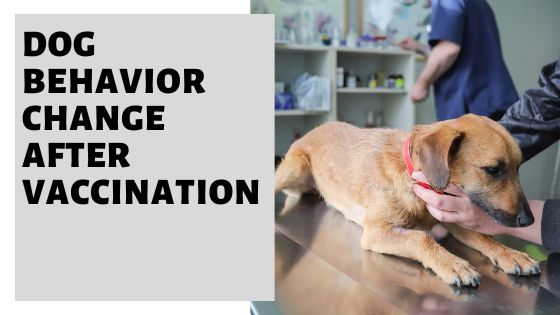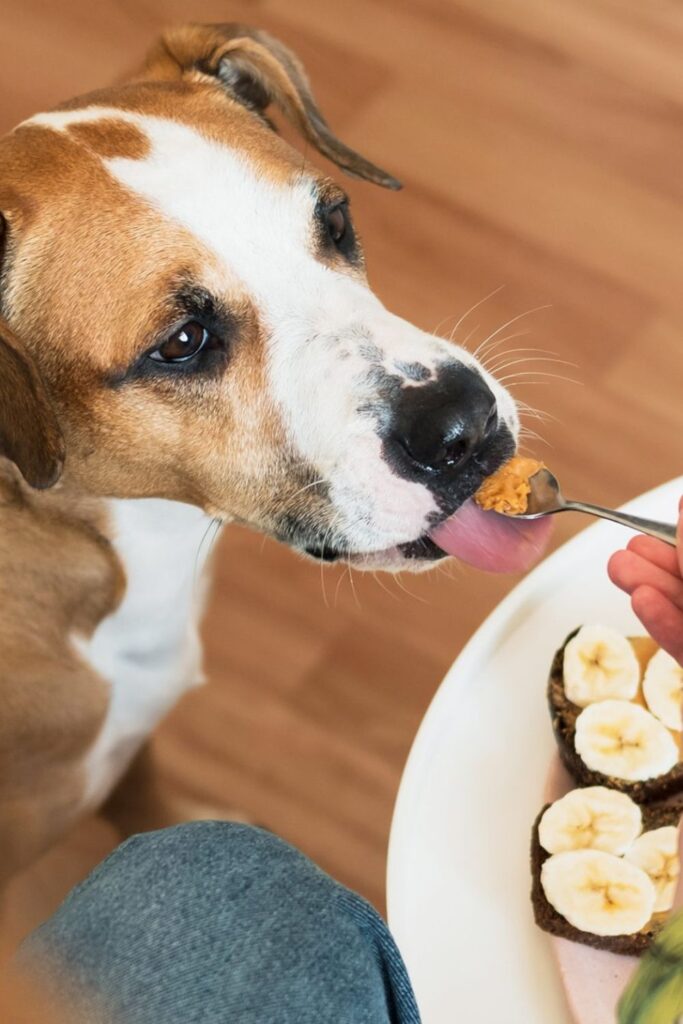Dog Behavior Change After Vaccination
Dog Behavior Change After Vaccination [Why & How To Respond]

Table of Contents
Navigating Your Dog’s Behavior Changes After Vaccination: A Complete Guide
Has your dog’s behavior changed following receiving his immunizations, in your opinion? Alarming, isn’t it? But is this typical and something that owners like us should really anticipate? And maybe even more crucially, will your dog’s regular, everyday behavior return? Here’s all the information you should know.
What caused the behavior change in your dog following the vaccination, then? Following immunization, dogs may exhibit altered behavior as their bodies attempt to combat the foreign compounds included in the shots. The majority of dogs recover from vaccinations in a matter of hours or days, but some may experience long-term effects.
Vaccinations are a critical part of your dog’s healthcare routine, designed to protect them from various diseases. However, it’s not uncommon for dogs to exhibit behavior changes after receiving a vaccine. This guide will help you understand why these changes occur and how to manage them effectively.
Ultimately, responses can vary because there are so many different variables at play.
The breed of your dog, their age, the vaccine itself, and so on and so forth.
As such, it will be interesting to see how your dog recovers over time.
However, there are a few things you should consider as well as strategies to help your dog during the transition.
If you continue reading, you’ll find yourself in a far better situation than when you first arrived here.
Understanding Post-Vaccination Behavior in Dogs
Common Behavioral Changes
After vaccination, some dogs may experience mild side effects that can affect their behavior. These can include lethargy, soreness at the injection site, a reduced appetite, and occasionally a low-grade fever. It’s similar to how humans feel after a vaccine slightly off but generally okay.
Why Behavior Changes Occur
The immune response triggered by a vaccine can cause your dog to feel under the weather. In rare cases, dogs may have a more significant reaction due to hypersensitivity or an allergic reaction to components in the vaccine, such as egg protein, gelatin, or fetal calf serum.
Managing Your Dog’s Comfort Post-Vaccination
Providing a Comfortable Environment
Ensure your dog has a quiet and comfortable place to rest after their vaccination. Avoid handling them too much, especially near the injection site, as it may be tender.
Monitoring for Serious Reactions
While most reactions are mild and resolve within a few days, it’s crucial to watch for signs of a more severe reaction, such as vomiting, diarrhea, facial swelling, hives, or difficulty breathing. If you notice these symptoms, seek immediate veterinary care.
Addressing Specific Concerns
How Long Will Behavior Changes Last?
Most dogs will return to their normal selves within a day or two. However, if you notice prolonged or severe changes, contact your veterinarian.
Can Vaccinations Cause Long-Term Behavioral Changes?
True behavioral changes solely due to vaccinations are rare. If your dog’s behavior doesn’t return to normal within a few days, it’s worth discussing with your vet to rule out other causes.
What Can I Do to Ease My Dog’s Anxiety After Vaccination?
Maintain a calm demeanor and provide gentle reassurance. Stick to routine as much as possible, and consider using positive reinforcement to help your dog feel securehttps://bonevoyagedogrescue.com/dog-behavior-change-after-vaccination/.
Supporting Your Dog Through Vaccination
Remember, vaccinations are an essential part of keeping your dog healthy. The minor discomfort they may experience is far outweighed by the protection vaccines offer. With your care and attention, your dog will be back to their happy, energetic self in no time.
Why Has Your Dog’s Behavior Changed Since Vaccination?
Your dog’s behavior could change after a vaccine due to not feeling well, hypersensitivity, an allergic reaction, or inflammation.
Not Feeling Well
As your dog’s body works to fight the tiny amount of disease that has been injected into his body, he may feel slightly unwell.
Most of us behave differently when we are under the weather, and it is the same for dogs.
Excessive sensitivity
It’s possible that your dog is hypersensitive to the vaccine and that, in order for his antibodies to start working, his body needs to adjust to its presence.
Immune complexes can occasionally cause inflammation at the vaccination site by depositing themselves in the surrounding tissues.
Varicella can also occur in dogs.
The general word used to characterize a range of skin conditions brought on by inflammation of the skin’s tiny blood vessels is called vasculitis (see below).
For instance, certain rabies vaccinations may result in dermatitis or alopecia localized. The tips of the ears, the tail, the scrotum, or the footpad may all have skin lesions.
Small canines, like these, are most frequently affected with vesculitis.
- Terriers Small-sized Poodles
- Bichon Frises
- Dogue
An Inflammatory Response
You may notice behavioral changes in your dog if he is allergic to something in the vaccine.
For example, some vaccines contain egg protein, so if your dog is allergic to eggs, he is likely to react.
Additional ingredients in vaccines that may trigger allergic responses include fetal calf serum or gelatin, which are used as stabilizers.
In some cases, an allergic response is brought on by an antibiotic (such neomycin).
Allergic response symptoms include:
- Angioedema, or swelling, typically in the head or ears
- Itching or pruritus
- Throwing up
- Sudden diarrhea
- Dyspnea, or trouble breathing
Hives, or elevated red skin welts, are known as urticaria. Though they can appear anywhere on the body, these welts typically appear on the lips, tongue, ears, cheeks, or throat.
Note: In order to acquire the proper diagnosis, consult your veterinarian right away. Some of these illnesses, including urticaria, may go away on their own in 12 to 48 hours. Anaphylactic shock is a potentially lethal condition that has symptoms with the ones listed above.
Your dog most certainly has systemic anaphylaxis if his tongue or gums are slightly blue and he is having trouble breathing. He needs emergency care to survive.
Because most of these problems will occur within minutes of exposure to an antigen, keep your dog in the clinic for at least 15 to 25 minutes after he’s received his vaccination.
You want to make sure any immediate problems are dealt with rapidly, particularly if your dog is severely allergic and goes into shock.
inflammatory response
An inflammation at the injection site might occasionally cause a dog’s behavior to alter.
Typically, mild inflammation doesn’t need to be alarming and goes away in 12 to 24 hours (sometimes even in 3 days).
Symptoms of inflammation in your dog may include:
- Discomfort where the injection was made
- Sluggishness
- Minor adjustments to behavior
- Anorexia or a marked decrease in appetite
- Sneezing or coughing (after receiving certain intranasal vaccinations containing Bordetella bronchiseptica).
- This is a normally transient reaction to the vaccine entering the upper respiratory system.
- Injection site swelling: less prevalent, these swellings can feel warm to the touch and can be firm or fluid-filled. These edema may persist for a week or longer.
Rarely, inflammation brought on by a vaccination can cause early fetal mortality in dogs that are pregnant. If the benefits of the vaccination don’t now exceed the hazards, you might want to hold off on giving it to a pregnant dog.




